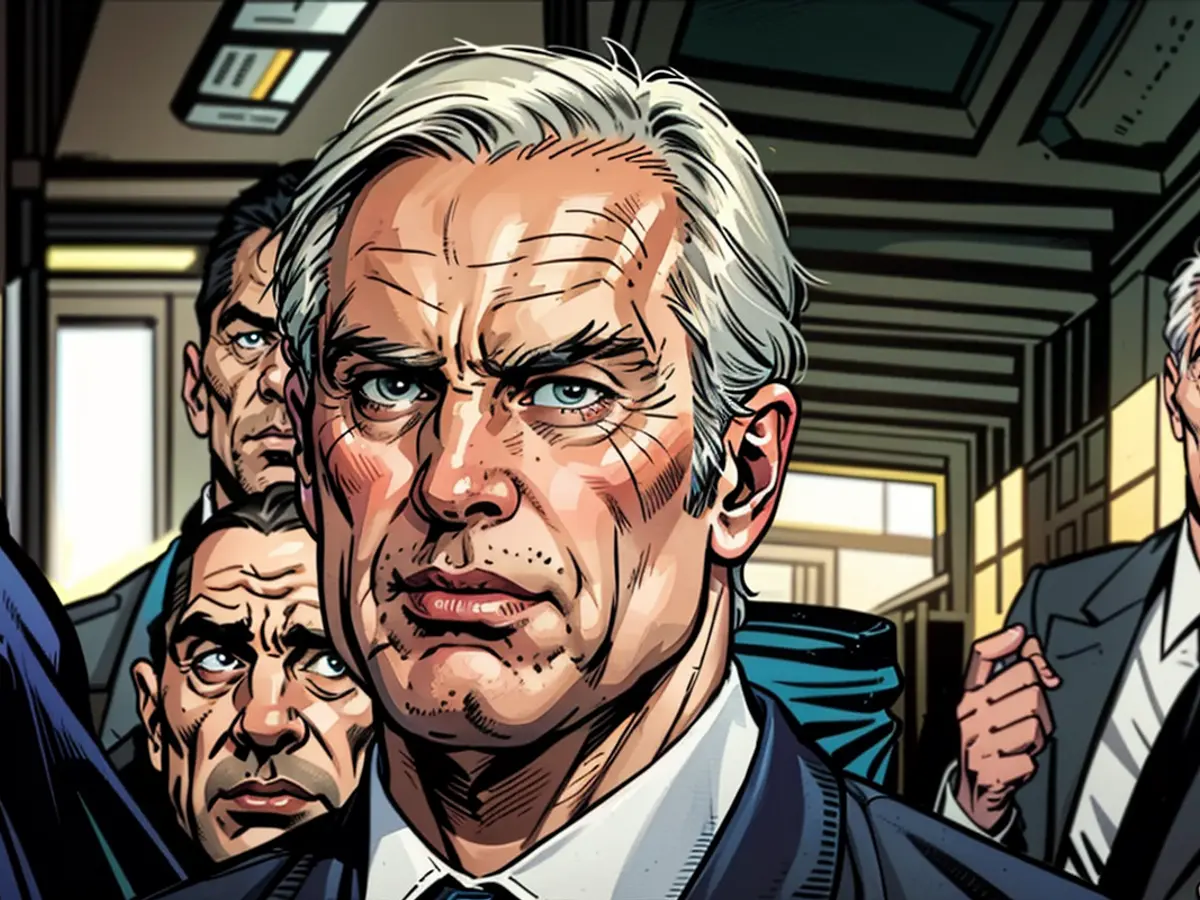France's current administration momentarily sets aside the outcomes of recent elections
After the majority left-leaning vote, France sees a shift towards a more conservative government. Eleven weeks following the unexpected parliamentary elections, President Emmanuel Macron has apppointed 39 government members. Among these, six individuals hold conservative views, with Interior Minister Bruno Retailleau being a notable figure. Previously serving as the Republican Party's Senate faction leader, he now takes up his new position.
Former European Minister Jean-Noël Barrot assumes the role of Foreign Minister, with a strong belief in joint debt issuance in the EU. His deputy, Benjamin Haddad, who is responsible for Franco-German relations, is also a European Minister. The Ministry of Economy has been handed to Antoine Armand, a 33-year-old close associate of Macron.
Despite the left bloc obtaining a majority in the polls, they are only represented by one Minister, Didier Migaud. Previously serving as a Socialist MP and heading the transparency authority, he is now the Minister of Justice. Several left politicians declined offers from Conservative Prime Minister Michel Barnier due to disagreements with his political stance.
Men occupy key positions
Defense Minister Sébastien Lecornu and Culture Minister Rachida Dati retain their positions. Also hailing from the conservative camp, Catherine Vautrin, formerly the Labor Minister, will now take charge of Regional Affairs.
Formal gender equality is in place, with 20 men and women holding positions, including the Prime Minister. However, the most influential roles are held by men. At least three government members, including Dati, have North African roots, with Othman Nasrou set to become the Anti-Discrimination State Secretary.
Notably, none of the potential presidential candidates are joining the government. Heavyweight politicians such as Interior Minister Gérald Darmanin and Economy Minister Bruno Le Maire are no longer involved, having left the government. Conservative faction leader Laurent Wauquiez also declined the Economy Ministry.
The opposition vocally expressed disappointment. Right-wing populist faction leader Marine Le Pen criticized the government, stating that it does not align with the expressed desire for change by voters. Le Pen's left-wing rival, Jean-Luc Mélenchon, termed the lineup as neither legitimate nor promising. Socialist Party leader Olivier Faure described the government as reactionary and disrespectful towards democracy.
Rapid budget proposal submission required
The first cabinet meeting is scheduled for Monday afternoon. Barnier is expected to deliver his government declaration in the National Assembly on October 1. Furthermore, the 2025 budget proposal is due for submission by this date to be reviewed and passed by the end of the year.
Barnier has emphasized the absence of general tax increases in his plans. He aims to tackle issues such as immigration and internal security, typically addressed by right-wing populists.
The far-right party Rassemblement National (RN) surprisingly fell short of the majority in the snap parliamentary election, contradicting poll predictions. Now, RN finds itself playing the role of kingmaker, as Barnier's government's survival depends on the RN's support or opposition to no-confidence votes.
The lengthy government formation process was due to the complicated majority dynamics between Macron's party, the Republicans (47 out of 577 seats in the snap parliamentary election in July), and Le Pen's right-wing populists. Since the election results left France in a political stalemate, a caretaker government had been in place for over two months. The National Assembly is currently divided into three hostile blocs: the left, the former liberal governing bloc, and Le Pen's right-wing populists.
Governments and political parties play significant roles in shaping a country's policies. For instance, President Emmanuel Macron's newly appointed government includes both left-leaning and conservative members, showcasing the diversity within governments and political parties.
The appointment of politicians like Interior Minister Bruno Retailleau and Defense Minister Sébastien Lecornu from the conservative camp demonstrates how governments and political parties sometimes maintain continuity with previous administrations.








